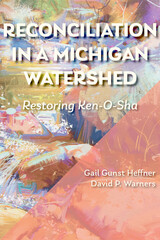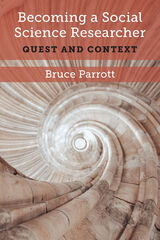
Becoming a Social Science Researcher is designed to help aspiring social scientists, including credentialed scholars, understand the formidable complexities of the research process. Instead of explaining specific research techniques, it concentrates on the philosophical, sociological, and psychological dimensions of social research. These dimensions have received little coverage in guides written for social science researchers, but they are arguably even more important than particular analytical techniques. Truly sophisticated social science scholarship requires that the researcher understand the intellectual and social contexts in which they collect and interpret information. While social science training in US graduate schools has become more systematic over the past two decades with numerous publications aimed at instruction, training and guidance still fall short in addressing the fundamental needs of this field.
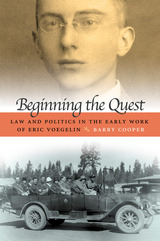

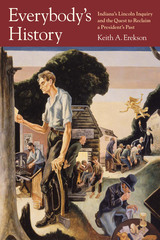
In Everybody's History, Keith A. Erekson focuses on the Southwestern Indiana Historical Society—an organization composed of lawyers, historians, collectors, genealogists, teachers, college presidents, and newspaper editors—who joined together during the 1920s and 1930s to recover a part of Lincoln's life his biographers had long ignored: the years from age seven to twenty-one when he lived on the Indiana frontier. Participants in the "Lincoln Inquiry," as it was commonly known, researched old records, interviewed aging witnesses, hosted pageants, built a historical village, and presented their findings in public and in print. Along the way they defended their methods and findings against competitors in the fields of public history and civic commemoration, and rescued some of Indiana's own history by correcting a forgotten chapter of Lincoln's.
Everybody's History traces the development of popular interest in Lincoln to uncover the story of an extensive network of nonprofessional historians who contested old authorities and advanced new interpretations. In so doing, the book invites all who are interested in the past to see history as both vital to public life and meaningful to everybody.
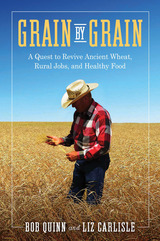
When Bob Quinn was a kid, a stranger at a county fair gave him a few kernels of an unusual grain. Little did he know, that grain would change his life. Years later, after finishing a PhD in plant biochemistry and returning to his family’s farm in Montana, Bob started experimenting with organic wheat. In the beginning, his concern wasn’t health or the environment; he just wanted to make a decent living and some chance encounters led him to organics.
But as demand for organics grew, so too did Bob’s experiments. He discovered that through time-tested practices like cover cropping and crop rotation, he could produce successful yields—without pesticides. Regenerative organic farming allowed him to grow fruits and vegetables in cold, dry Montana, providing a source of local produce to families in his hometown. He even started producing his own renewable energy. And he learned that the grain he first tasted at the fair was actually a type of ancient wheat, one that was proven to lower inflammation rather than worsening it, as modern wheat does.
Ultimately, Bob’s forays with organics turned into a multimillion dollar heirloom grain company, Kamut International. In Grain by Grain, Quinn and cowriter Liz Carlisle, author of Lentil Underground, show how his story can become the story of American agriculture. We don’t have to accept stagnating rural communities, degraded soil, or poor health. By following Bob’s example, we can grow a healthy future, grain by grain.
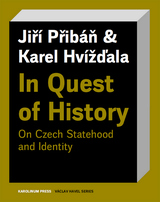
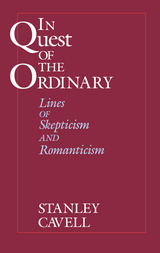
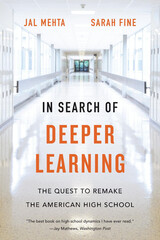
Winner of the Grawemeyer Award
“In their brave search for depth in American high schools, scholars Jal Mehta and Sarah Fine suffered many disappointments…Undeterred, they spent 750 hours observing classes, interviewed more than 300 people, and produced the best book on high school dynamics I have ever read.”
—Jay Mathews, Washington Post
“A hopeful, easy-to-read narrative on what the best teachers do and what deep, engaging learning looks like for students. Grab this text if you’re looking for a celebration of what’s possible in American schools.”
—Edutopia
“This is the first and only book to depict not just the constraints on good teaching, but also how good teachers transcend them. A superb book in every way: timely, lively, and entertaining.”
—Jonathan Zimmerman, University of Pennsylvania
What would it take to transform our high schools into places capable of supporting deep learning for students across a wide range of aptitudes and interests? To find out, Jal Mehta and Sarah Fine spent hundreds of hours observing and talking to teachers and students in and out of the classroom at thirty of the country’s most innovative schools. To their dismay, they discovered that deeper learning is more often the exception than the rule. And yet they found pockets of powerful learning at almost every school, often in extracurriculars but also in a few mold-breaking academic courses. So what must schools do to achieve the integrations that support deep learning: rigor with joy, precision with play, mastery with identity and creativity?
In Search of Deeper Learning takes a deep dive into the state of our schools and lays out an inspiring new vision for American education.
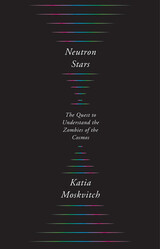
The astonishing science of neutron stars and the stories of the scientists who study them.
Neutron stars are as bewildering as they are elusive. The remnants of exploded stellar giants, they are tiny, merely twenty kilometers across, and incredibly dense. One teaspoon of a neutron star would weigh several million tons. They can spin up to a thousand times per second, they possess the strongest magnetic fields known in nature, and they may be the source of the most powerful explosions in the universe. Through vivid storytelling and on-site reporting from observatories all over the world, Neutron Stars offers an engaging account of these still-mysterious objects.
Award-winning science journalist Katia Moskvitch takes readers from the vast Atacama Desert to the arid plains of South Africa to visit the magnificent radio telescopes and brilliant scientists responsible for our knowledge of neutron stars. She recounts the exhilarating discoveries, frustrating disappointments, and heated controversies of the past several decades and explains cutting-edge research into such phenomena as colliding neutron stars and fast radio bursts: extremely powerful but ultra-short flashes in space that scientists are still struggling to understand. She also shows how neutron stars have advanced our broader understanding of the universe—shedding light on topics such as dark matter, black holes, general relativity, and the origins of heavy elements like gold and platinum—and how we might one day use these cosmic beacons to guide interstellar travel.
With clarity and passion, Moskvitch describes what we are learning at the boundaries of astronomy, where stars have life beyond death.
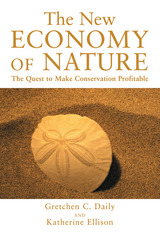
Why shouldn't people who deplete our natural assets have to pay, and those who protect them reap profits? Conservation-minded entrepreneurs and others around the world are beginning to ask just that question, as the increasing scarcity of natural resources becomes a tangible threat to our own lives and our hopes for our children. The New Economy of Nature brings together Gretchen Daily, one of the world's leading ecologists, with Katherine Ellison, a Pulitzer-prize winning journalist, to offer an engaging and informative look at a new "new economy" -- a system recognizing the economic value of natural systems and the potential profits in protecting them.
Through engaging stories from around the world, the authors introduce readers to a diverse group of people who are pioneering new approaches to conservation. We meet Adam Davis, an American business executive who dreams of establishing a market for buying and selling "ecosystem service units;" John Wamsley, a former math professor in Australia who has found a way to play the stock market and protect native species at the same time; and Dan Janzen, a biologist working in Costa Rica who devised a controversial plan to sell a conservation area's natural waste-disposal services to a local orange juice producer. Readers also visit the Catskill Mountains, where the City of New York purchased undeveloped land instead of building an expensive new water treatment facility; and King County, Washington, where county executive Ron Sims has dedicated himself to finding ways of "making the market move" to protect the county's remaining open space.
Daily and Ellison describe the dynamic interplay of science, economics, business, and politics that is involved in establishing these new approaches and examine what will be needed to create successful models and lasting institutions for conservation. The New Economy of Nature presents a fundamentally new way of thinking about the environment and about the economy, and with its fascinating portraits of charismatic pioneers, it is as entertaining as it is informative.
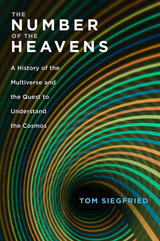
The award-winning former editor of Science News shows that one of the most fascinating and controversial ideas in contemporary cosmology—the existence of multiple parallel universes—has a long and divisive history that continues to this day.
We often consider the universe to encompass everything that exists, but some scientists have come to believe that the vast, expanding universe we inhabit may be just one of many. The totality of those parallel universes, still for some the stuff of science fiction, has come to be known as the multiverse.
The concept of the multiverse, exotic as it may be, isn’t actually new. In The Number of the Heavens, veteran science journalist Tom Siegfried traces the history of this controversial idea from antiquity to the present. Ancient Greek philosophers first raised the possibility of multiple universes, but Aristotle insisted on one and only one cosmos. Then in 1277 the bishop of Paris declared it heresy to teach that God could not create as many universes as he pleased, unleashing fervent philosophical debate about whether there might exist a “plurality of worlds.”
As the Middle Ages gave way to the Renaissance, the philosophical debates became more scientific. René Descartes declared “the number of the heavens” to be indefinitely large, and as notions of the known universe expanded from our solar system to our galaxy, the debate about its multiplicity was repeatedly recast. In the 1980s, new theories about the big bang reignited interest in the multiverse. Today the controversy continues, as cosmologists and physicists explore the possibility of many big bangs, extra dimensions of space, and a set of branching, parallel universes. This engrossing story offers deep lessons about the nature of science and the quest to understand the universe.
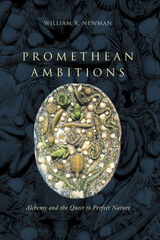
In Promethean Ambitions, William R. Newman ambitiously uses alchemy to investigate the thinning boundary between the natural and the artificial. Focusing primarily on the period between 1200 and 1700, Newman examines the labors of pioneering alchemists and the impassioned—and often negative—responses to their efforts. By the thirteenth century, Newman argues, alchemy had become a benchmark for determining the abilities of both men and demons, representing the epitome of creative power in the natural world. Newman frames the art-nature debate by contrasting the supposed transmutational power of alchemy with the merely representational abilities of the pictorial and plastic arts—a dispute which found artists such as Leonardo da Vinci and Bernard Palissy attacking alchemy as an irreligious fraud. The later assertion by the Paracelsian school that one could make an artificial human being—the homunculus—led to further disparagement of alchemy, but as Newman shows, the immense power over nature promised by the field contributed directly to the technological apologetics of Francis Bacon and his followers. By the mid-seventeenth century, the famous "father of modern chemistry," Robert Boyle, was employing the arguments of medieval alchemists to support the identity of naturally occurring substances with those manufactured by "chymical" means.
In using history to highlight the art-nature debate, Newman here shows that alchemy was not an unformed and capricious precursor to chemistry; it was an art founded on coherent philosophical and empirical principles, with vocal supporters and even louder critics, that attracted individuals of first-rate intellect. The historical relationship that Newman charts between human creation and nature has innumerable implications today, and he ably links contemporary issues to alchemical debates on the natural versus the artificial.
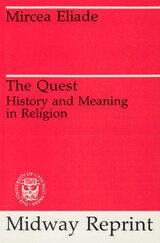
"Each of these essays contains insights which will be fruitful and challenging for professional students of religion, but at the same time they all retain the kind of cultural relevance and clarity of style which makes them accessible to anyone seriously concerned with man and his religious possibilities."—Joseph M. Kitagawa, Religious Education

READERS
Browse our collection.
PUBLISHERS
See BiblioVault's publisher services.
STUDENT SERVICES
Files for college accessibility offices.
UChicago Accessibility Resources
home | accessibility | search | about | contact us
BiblioVault ® 2001 - 2024
The University of Chicago Press


